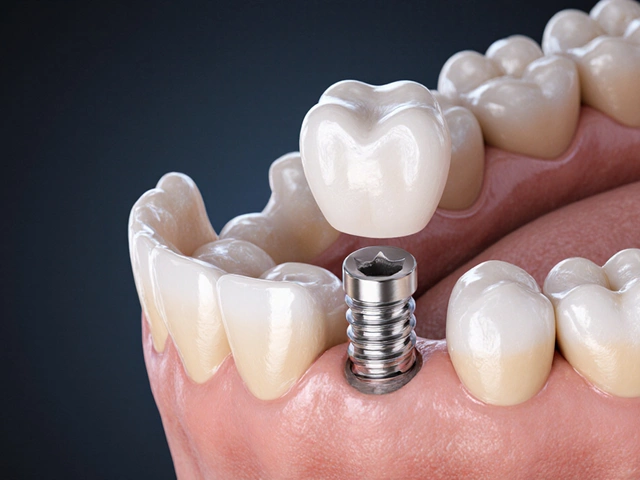If you ask anyone who’s had open-heart surgery, most will tell you—they had no clue what real recovery looked like until they lived it. You hear stories about getting patched up, spending a few days in the hospital, and walking out as good as new. That’s not exactly how things go.
The first thing to know: open-heart surgery isn’t like getting your appendix out. It’s a massive deal for your body. Even after you leave the hospital, you’re facing weeks, sometimes months, where just getting out of bed is an achievement. Simple stuff—like showering or climbing stairs—suddenly feels like a workout. Your energy comes back in frustrating bursts, not all at once.
A lot of people don’t expect how much the mind gets involved. It’s not just the scar or the pain. Some folks feel blue, anxious, or even a little foggy as they recover. That’s all normal, but not always talked about at the hospital.
The practical tip here? Don’t rush yourself. Even walking a few minutes each day can help, but the key is to listen to your body instead of trying to keep up with anyone else’s timeline. Small improvements add up. Think of recovery like a marathon, not a sprint.
- The Immediate Road to Recovery
- Long-Term Changes After Surgery
- Physical and Emotional Adjustments
- Tips to Boost Healing and Well-Being
- What 'Full Recovery' Really Means
The Immediate Road to Recovery
You wake up in the ICU after open-heart surgery, and honestly, the first few days are a blur. Tubes, beeping monitors, and nurses checking in—this is normal. Most people stay in the intensive care unit for a day or two, then get moved to a regular hospital room for about 5 to 7 days. Even sitting up in bed feels like a mini workout at this point.
Right after surgery, the everyday stuff you took for granted can suddenly feel impossible. Your chest will be sore, breathing deep hurts, and you’ll likely feel wiped out. Here’s what usually happens in those first days:
- Your vital signs (like blood pressure and heart rate) get tracked constantly to spot problems early.
- Nurses encourage you to take deep breaths and cough—this helps prevent pneumonia.
- Physical therapists may help you stand or walk a few steps as soon as the same day you wake up.
- You might go home with some new meds to keep your heart steady and control pain.
It’s also normal for appetite to disappear or taste to change for a bit. Don’t freak out if food doesn’t seem appealing right away—it almost always comes back within a couple of weeks.
One thing patients never expect? How much help they’ll need with basic stuff. You’ll probably need a hand showering, getting dressed, or just getting out of bed. That’s why it’s smart to line up help at home if you can before heading in for surgery.
As Dr. Allan Stewart, a top heart surgeon at Mount Sinai, says:
"Those first seven days after open-heart surgery are about rest and gentle movement. People are surprised by how tired they feel, but that’s the body putting all its energy into healing."
The most important thing in this stage is not to push yourself. Forget about work emails or chores. Focus on following the care team’s instructions, moving when you can, and letting your body and your open-heart surgery recovery run the show.
Long-Term Changes After Surgery
Once the initial healing phase is over, real life after open-heart surgery starts to feel a bit different—sometimes in obvious ways, sometimes in small, sneaky ways you never expected. You might wonder, “Will I get back to my old self?” The truth is, things usually settle into a ‘new normal.’
One big change is stamina. It often takes months, and for some, more than a year, to hit the level of energy you had before. Even then, you might tire out quicker, especially if your heart wasn’t strong to begin with. Some folks are surprised to find they need a nap in the middle of the day, even months after surgery.
Here’s another curveball—your medication shelf gets crowded. Most people are sent home with a mix of blood thinners, statins, beta-blockers, or blood pressure meds. It’s not uncommon to wonder if you’ll ever remember what life without daily pills felt like.
| Change | Typical Timeline |
|---|---|
| More medications | Usually life-long |
| Chest bone fully heals | 3-6 months |
| Normal sleep returns | Up to 6 months |
| Sexual activity resumes | 6-12 weeks after surgery |
| Back to regular driving | 6 weeks, if no complications |
| Depression/anxiety | 30% report symptoms for 3-12 months |
One surprise nobody warns you about: weird sensations around the scar can stick around for ages. Tingling, numbness, or even sharp zingers happen because nerves are still healing. For a lot of people, these are quirks you get used to, not quick fixes.
Food habits change too. Doctors usually push for more veggies, less salt, and maybe a total ban on your favorite fried snacks. Some folks nail the new diet, others struggle. Be gentle with yourself—small changes are better than none.
- Stick to your regular check-ups. Heart surgeons track progress for years, not months.
- Don’t blow off cardiac rehab if you’re offered it. People who do it tend to stay active longer.
- Mood swings and the blues? Totally common—it’s okay to ask for help or talk to your doc.
The biggest takeaway: most people feel way better than before surgery, but nobody walks out of this 100% the same. That’s not a bad thing—it's just how healing works.

Physical and Emotional Adjustments
This is where recovery surprises most people. Open-heart surgery is a shock to your whole system, and the fallout isn’t only physical.
On the physical side, people often deal with soreness or stiffness in the chest and shoulders, especially for the first two months. Your sternum literally has to heal, and that takes time. Many feel exhausted after even basic activities—this is normal. Weird symptoms pop up too, like itchy scars, muscle spasms, or clicking in the chest when moving; they usually fade, but it’s smart to ask your doctor if you’re unsure.
Cognitive stuff is real too. Around 30% of patients experience “pump head”—a temporary fogginess or memory issues after surgery. Doctors think it comes from the heart-lung machine or just the body’s stress response.
| Common Adjustments | How Long They Last |
|---|---|
| Sore chest muscles | Up to 10 weeks |
| Fatigue | 2-6 months |
| Memory or focus issues | About 6 weeks (sometimes longer) |
| Mood changes (anxiety, sadness) | Can linger for months |
The emotional rollercoaster doesn’t get enough attention. About 1 in 5 people feel a dip in mood or even depression after open-heart surgery. Sometimes it’s just shock from what they’ve been through. Sometimes it’s the meds or even the sleep disruption that can last for weeks afterwards.
- If you find yourself snapping at loved ones or crying more than usual, it’s actually very common.
- Don’t be surprised if boring stuff like TV shows or even everyday chores feel overwhelming for a while.
- Talking with someone—a friend, counselor, or cardiac rehab group—can really help. People who talk about their emotions often recover faster, physically too.
Your best move? Keep a simple daily log of your physical symptoms and mood. Show it to your doctor at check-ups. If you notice chest pain that isn’t fading, or you’re feeling seriously down for more than a couple weeks, reach out for help. No need to tough it out alone.
Tips to Boost Healing and Well-Being
No one gets a manual after open-heart surgery, but there are things you can do to actually speed up recovery and feel more like yourself again. Doctors agree these small habits make a big difference six months down the road.
- Stick to cardiac rehab. This is a game changer. People who attend all their sessions are way less likely to end up back in the hospital. Cardiac rehab is basically like personal training, but way safer—they watch your heart and know exactly how much activity you can handle.
- Walk a little more each day. Even 5 extra minutes every couple days helps. Slow progress wins here. Set goals, track steps on your phone, and watch how your body responds.
- Eat smart. Aim for more veggies, whole grains, and lean protein. Watch the salt and processed foods. Bonus: people who eat this way have lower rates of issues from clogged arteries later on.
- Get plenty of sleep. Your body needs more rest than you think. If sleep is rough, ask your doctor—sometimes pain or new meds make it tricky, and fixing that helps everything else heal.
- Share how you feel. It’s easy to clam up about mood swings or feeling weird. Don’t. Lots of folks get the "post-op blues"—it doesn’t mean you’re weak. There’s support out there, and even talking to your doctor about it makes moving forward easier.
Here’s some real data showing the impact:
| Tip | How Common | Benefit (%) |
|---|---|---|
| Completing cardiac rehab | About 70% of patients offered it | 35% lower chance of repeat hospital stay |
| Walking 30 min/day | Around 60% actually keep it up | Improves energy, speeds healing |
| Getting 7-8 hours sleep | Less than 50% get enough at first | Cuts recovery time by weeks |
Don’t ignore weird symptoms, either. If you feel out of breath just walking across the room, or the pain gets worse instead of better, call your care team. Small changes can actually be early warning signs.
The big takeaway? You’re in control of more than you think. Doing these basics—and getting help when you need it—adds up fast. Recovery isn’t just what happens in the hospital, it’s in all these everyday choices once you’re back home.

What 'Full Recovery' Really Means
People always want a straight answer: will I ever be the same after open-heart surgery? The truth is, "full recovery" means different things depending on who you ask. Let’s cut through the fog and get real about what you can and can’t expect.
The classic recovery checklist the doctor gives you might include walking without help, going back to work, and being able to drive again. For most people, that happens between 6 to 12 weeks. But physical healing is just one part—the rest takes a lot longer, and sometimes, there are lasting changes.
Your body goes through a lot. Muscle strength, stamina, sleep, and appetite all take a hit. In fact, as of a 2023 survey from the American Heart Association, about 45% of patients say it took them a whole year to feel "like themselves" again. What’s that actually mean? It’s stuff like being able to play with your kids, walk up the stairs without getting wiped out, or feeling okay about that scar on your chest.
| Milestone | Average Recovery Time | Percentage Achieving This |
|---|---|---|
| Return to light activities | 2-4 weeks | 80% |
| Drive a car safely | 6-8 weeks | 75% |
| Return to work (non-physical jobs) | 8-12 weeks | 65% |
| Feel 'back to normal' | 6-12 months | 45% |
But let’s be honest: some things might feel changed forever. Shortness of breath, less energy, or new aches pop up for a lot of people, even after a year. You’ll probably have regular meds and checkups as staples in your life from now on, and yes, some folks end up with persistent anxiety about their open-heart surgery and heart health in general. It’s totally normal to feel frustrated about that.
The upside? Tons of people actually come back stronger, just with some new habits. Staying active, eating right, not skipping your meds—these things matter more than ever. Recovery isn’t about being exactly like you were before; it’s about building a new normal that works for you.
- Build in rest, but keep moving as your doc recommends.
- Don’t skip cardiac rehab—it boosts confidence and recovery speed.
- Talk about your feelings. Heart surgery messes with your head as much as your chest.
- Be patient. Comparing your recovery to others will just make you crazy.
The bottom line: Full recovery from open-heart surgery usually means getting back to most of your regular life, with a few changes. For about half of people, that takes up to a year. For some, it means learning to deal with a "new normal"—but that doesn’t mean you can’t get back to living well.






